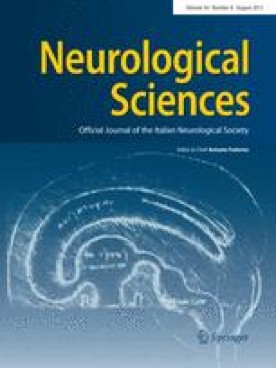Neurological sciences
2021 Feb 5 doi: 10.1007/s10072-021-05114-4. Online ahead of print.
Abstract
Background: Indomethacin (IMC) as a prophylactic treatment is considered to be ineffective in cluster headache (CH). However, small series suggested the interest of IMC in CH. Some authors support that an IMC test is useful in all trigeminal autonomic cephalalgias. We described clinical features of IMC responders in a retrospective cohort of chronic cluster headache (CCH).
Methods: This single-center and retrospective study was conducted in a tertiary care specialist headache center in France. Patients were selected between January 2007 and December 2008. We included all patients fulfilling CCH criteria (ICHD-3-beta). Data were collected from medical records. We recorded all the prescriptions of IMC as a prophylactic treatment. Responders were defined by 50% reduction in attack frequency; complete response was defined by disappearance of the attacks. The non-responders must have received at least 100 mg daily during 7 days.
Results: The study consisted of 324 CCH, 121 female (37%) and 203 males (63%) with an average age at onset of 33.93 (± 14.71) years. Of the patients, 105 were treated with IMC. Thirty patients (29%) were responders. Thirty-four patients (32%) were non-responders. Responding status was undefined for 41 patients (39%). Twelve patients (11%) had a complete response. Responders were composed by 18 women (60%) and 12 men (40%) and had on average 44.89 (± 12.88) years. The minimal effective dose was 86.11 mg daily (± 48.72).
Discussion: This study shows the interest of IMC in CCH patients. We recommend an IMC test as a third-line treatment in CCH.
Keywords: Indotest; NSAID; Primary headache; Prophylactic treatment; Trigeminal autonomic cephalalgia.
- PMID: 33547540
- DOI: 10.1007/s10072-021-05114-4


